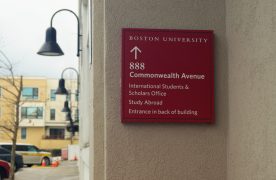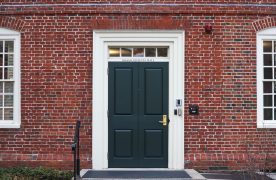
The Massachusetts State Legislature will not be clarifying medical marijuana laws this congressional session despite an April 17 Supreme Judicial Court ruling that raised concerns with the Commonwealth’s current legislation.
A 2012 ballot measure allows Massachusetts residents to possess a 60-day, or 10-ounce supply, of medical marijuana. Daniel Smith, legislative director and general counsel for Sen. Patricia Jehlen, said the ruling rested partially on the fact that the guilty party was convicted of selling marijuana illegally.
“It wasn’t decided on the amount of plants that were being grown at one time,” Smith said. “It was based upon finding a large quantity of cash, finding scales [and] finding baggies in the same location as the marijuana.”
Currently, medical marijuana patients who require a larger dosage can receive permission with a doctor’s recommendation. Despite this, the court called into question the clarity of the language regarding the 60-day medical marijuana supply.
“What the court referenced was that it’s hard to tell from the language of a 60-day supply and of 10 oz. how that applies to growing plants,” Smith said.
He said defining the supply in terms of the number of marijuana plants could be cause for concern, since plant yield can vary depending on the grower.
“There’s plenty of evidence to show that separately defining [the 60-day supply] based on an arbitrary number of plants, when everyone admits that we don’t know how much is coming from each plant, kind of criminalizes people that are poor at growing marijuana,” Smith said.
Jehlen, who is also the chairwoman of the Massachusetts Joint Committee on Marijuana Policy, said in a statement that the language of the law allows patients to consult with their doctors about their medical marijuana dosages.
“Growing these plants is difficult,” Jehlen said. “Different medical conditions require different treatments, so there is no magical plant count that ensures the exact adequate supply, no more no less.”
Therefore, law enforcement cannot solely rely on the number of plants being grown to determine illegal activity, Jehlen wrote.
However, Joseph Gilmore, director of community outreach at the Massachusetts Recreational Consumer Council, wrote in an email that the language of the 60-day supply rule creates uncertainty in the medical marijuana law, thus making the need for legal clarifications more urgent this congressional session.
“Clarification is necessary so that we can provide better solutions for those who need better access and are not restricted to their medicine,” Gilmore wrote. “Gray areas in the law also leave patients vulnerable to law enforcement due to non-specific parameters that can be easily misinterpreted.”
Sehar Khalid, a resident of South Boston, said she supports legislation that gives people easier access to medical marijuana.
“If folks can have an easier time with growing it at home rather than having to go out and actually purchase it, I feel that it’s actually beneficial for people who really truly need it for medicinal reasons,” Khalid, 24, said.
While having the ability to grow medical marijuana at home could benefit those who have trouble accessing the drug, she said the vague language of the law could set them up to end up unintentionally violating it.
“I think that really cracking down on the regulations for Massachusetts would help definitely for people who don’t really understand what the regulations are,” Khalid said. “It could keep people who aren’t intending to get in trouble from getting in trouble.”
As an employee of a medical marijuana facility, Gilmore wrote that he has seen patients struggle with the law’s current limitations.
“I’ve had to turn away many sick patients simply because they reached their 60-day limit, which was an arbitrary number to begin with,” Gilmore wrote. “I think the cap on the supply of marijuana for medical patients should be removed … We should be increasing access across the Commonwealth.”
Gilmore wrote that residents should reach out to local lawmakers to encourage clarification this session.
“We need to urge our local representatives and senators to not forget about the patients in Massachusetts who are suffering because of lack of access to their only medicine that provides a better quality of life,” he wrote.














